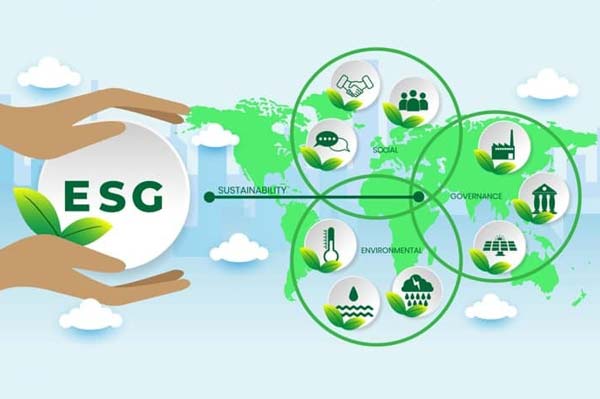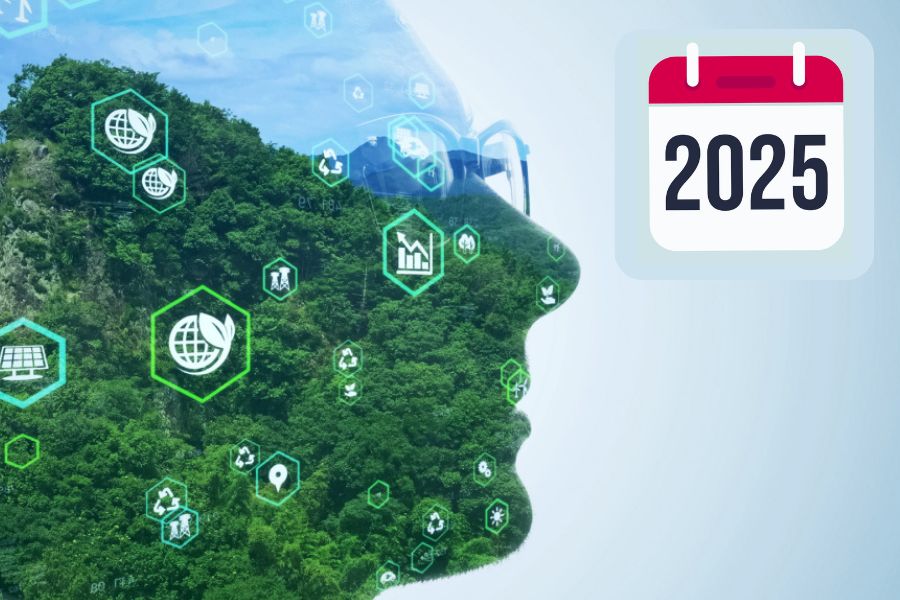Emerging markets are positioning themselves as key players in the global ESG movement, fuelled by rising investor interest, regulatory developments, and a growing awareness of the need for sustainable growth. Here is what we can expect for ESG and sustainability in emerging markets by 2025.
1. Regulatory Changes and Compliance in Emerging Markets
The regulatory landscape in emerging markets will become more structured, following global standards but with nuances adapted to regional contexts. Countries in Africa, Asia, and Latin America are increasingly recognising that sustainable practices are not a luxury but a necessity for long-term economic stability and environmental protection. Governments in these regions are expected to ramp up sustainability policies and introduce more formalised ESG disclosure requirements.
A key driver of these changes is the growing need for foreign investment. Global investors, who are increasingly integrating ESG factors into their decision-making, will require better transparency and standardisation from companies in these markets. Regulatory frameworks, inspired by international guidelines such as the EU’s Corporate Sustainability Reporting Directive (CSRD) and the recommendations of the Task Force on Climate-related Financial Disclosures (TCFD), will be adapted to the specific needs of emerging economies.
However, there will be challenges. Capacity building will be essential to ensure that businesses in these regions can meet the new compliance standards. We will likely see international organisations and NGOs working alongside local governments to develop the skills, knowledge, and tools needed for companies to adapt.
2. Technological Innovation and Data Analytics in Emerging Markets
Technological innovation will be a critical enabler for ESG progress in emerging markets. While these regions have historically lagged in terms of digital infrastructure, the increasing affordability and accessibility of new technologies will allow emerging markets to leapfrog traditional sustainability methods.
Mobile technology, blockchain, and renewable energy innovations are expected to have a transformative impact. For example, in countries where banking infrastructure is underdeveloped, blockchain could provide transparency and traceability for ESG metrics in sectors such as agriculture and mining. AI and data analytics will enable companies to better track resource use, emissions, and social impact, which are vital for attracting ESG-conscious investors.
We are also likely to see advancements in renewable energy technology, particularly solar, which will play a major role in achieving energy sustainability in many African and South Asian countries. Local businesses and governments can harness these technologies to improve their ESG performance while contributing to sustainable development goals.
3. ESG Investing and Financial Market Trends in Emerging Markets
ESG investing will increasingly target emerging markets as global investors seek to diversify their portfolios and address the heightened ESG risks and opportunities in these regions. Historically, emerging markets have been viewed as high-risk from an ESG perspective, but this is changing as local companies become more attuned to sustainability expectations.
Impact investing, which focuses on generating both financial returns and positive social or environmental outcomes, will be a major trend in emerging markets. There will be a particular emphasis on sectors such as renewable energy, clean water, education, and healthcare. Green bonds and sustainability-linked loans will also see growth in these regions, driven by a combination of local market initiatives and international financial institutions seeking new areas for sustainable investment.
One of the biggest opportunities lies in the ability of emerging markets to harness natural resources sustainably while addressing social development goals. For investors, the appeal is not only in economic growth but in the potential to make a positive impact on climate change, poverty, and inequality.
4. Corporate Accountability and Net-Zero Commitments
Companies in emerging markets will face increasing pressure to align with global net-zero targets, particularly in industries like energy, agriculture, and manufacturing. While the journey may be more challenging than in developed markets due to financial and infrastructural limitations, we will see growing numbers of companies setting ambitious net-zero goals.
Multinational corporations operating in these regions will lead the way as they bring their global ESG commitments into emerging market operations. However, we will also see homegrown businesses, especially in sectors like renewable energy, agriculture, and technology, making significant strides. International development banks and NGOs will be crucial in helping local companies transition by providing funding, training, and technological support.
A major focus will be on managing and reducing scope three emissions, particularly in supply chains, which are often complex and globalised in emerging markets. Companies will need to adopt more transparent reporting practices and be prepared to collaborate with international partners to meet climate targets.
5. Consumer Expectations and Brand Reputation in Emerging Markets
Consumer expectations in emerging markets are evolving, and by 2025, we will see a noticeable shift towards sustainability-conscious purchasing. The growing middle class in countries like India, Brazil, and Indonesia is becoming more aware of environmental and social issues, and this will have a direct impact on the types of products and services in demand.
Local businesses, particularly in sectors such as retail, food, and agriculture, will need to respond to these changes by incorporating sustainability into their brand values. Companies that fail to demonstrate a genuine commitment to sustainability and ethical practices will risk losing market share to more proactive competitors.
Moreover, the rise of social media in these regions will amplify the voices of consumers, allowing them to hold brands accountable more easily. As a result, brand reputation in emerging markets will become even more closely tied to sustainability performance, just as it is in developed markets.
6. Social Sustainability and the Evolving “S” in ESG
The social component of ESG will be a defining focus in emerging markets by 2025. Issues such as labour rights, community development, and access to education and healthcare will take centre stage. As economies in these regions grow, so too will the demand for businesses to play a role in addressing social inequalities and improving the well-being of their communities.
Diversity, equity, and inclusion (DEI) will become more prominent as companies recognise the importance of equitable growth and fair treatment in the workplace. Businesses that take a proactive approach to social sustainability will be well-positioned to attract talent, investors, and customers.
At the same time, there will be a strong push for companies to engage with local communities in meaningful ways, contributing to the overall development of the region. Social sustainability will not be a “tick-the-box” exercise but a core part of business strategy in emerging markets.
7. The Role of Public-Private Partnerships in Emerging Markets
Public-private partnerships (PPPs) will be essential to driving sustainability progress in emerging markets. Governments in these regions often face resource constraints, and collaboration with the private sector will be necessary to meet sustainability targets.
These partnerships will be particularly important in infrastructure projects related to renewable energy, clean water, and sustainable agriculture. International organisations and development banks will also play a crucial role, providing the financing and expertise needed to scale sustainable projects in these regions.
Successful PPPs will not only drive progress toward environmental goals but also create jobs, improve living conditions, and contribute to social development. Emerging markets could become global leaders in innovative sustainability solutions through these collaborative efforts.
In closing
The future of ESG and sustainability in emerging markets is both challenging and full of potential. We will see greater regulatory alignment with global standards, significant advances in technology, and growing investor interest in sustainable projects. However, to fully realise these opportunities, businesses in emerging markets will need to embrace sustainability as a strategic priority, invest in capacity building, and collaborate with local and international partners.
The path ahead is clear: those who are proactive in adapting to ESG trends will thrive in the new sustainability-driven global economy. Emerging markets are poised to play a central role in this transformation, offering not only financial returns but also the opportunity to drive meaningful social and environmental progress.



